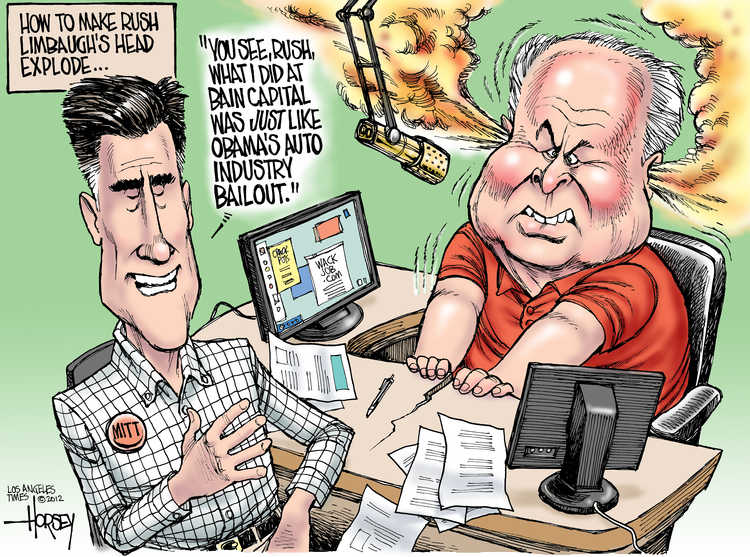I'm sorry. Although I support the
creation of a new bankruptcy chapter for companies deemed "too big to fail", and I support proposals to
keep "too big to fail" from being an excuse in the future to bail out companies that should go through bankruptcy or otherwise be allowed to fail, I find myself completely unable to get worked up about the idea that certain Chrysler and GM creditors are
getting a raw deal in bankruptcy.
The concept seems to be this: Even though the auto companies survive solely on government bailout funds, and can make their way through bankruptcy only with the government guaranteeing their debt and warranties and providing additional cash support, and even though the creditors objecting to the proposed distribution would be receiving far less but for the government bail-out, and even though to give them more increases the government's future exposure through the Pension Benefit Guarantee Corp., it's hideously unfair that the government is using its position to bring about a settlement that doesn't provide a greater transfer of taxpayer money to cover the private losses of GM and Chrysler investors.
Why are these people so willing, eager, to regard taxpayer dollars as meaningless. No, that's not quite right. As a justification for a wealth transfer from the taxpayers to investors who made a poor investment. What if we had a perfectly reasonable law that, when a major business falters and is deemed "too big to fail", but cannot obtain the private capital it needs to maintain its operations, in the event of bankruptcy any loans or other aid it receives from the government to get it through the crisis must be paid back
to the penny before any other creditor may receive a distribution? How would that be unfair? Yet in the context of GM and Chrysler, the deal being offered to creditors is far more generous.
With all due respect to
those who pretend that nobody can bid against Fiat for Chrysler because
nobody has had time to figure out what Chrysler is really worth, how hard is it to beat a bid of $0? What reason is there to believe that Obama would be anything but
pleased with a higher bid, a bidding war, or a bid from a domestic company? Seriously, Chrysler was privately held by Cerberus Capital Management, a company that deems itself a turnaround specialist, and I don't think they would have hesitated to provide a detailed prospectus to
anyone who was willing to outbid Fiat. I also don't accept that Fiat is the only company that noticed Chrysler was for sale, and spent a bit of time kicking the tires and looking under the hood.
I expect that the legal challenges to the proposed resolution of Chrysler's bankruptcy will fail. I agree that what we're doing here (and, outside of the bankruptcy process, with major financial institutions) is
far from ideal. I am anything but thrilled with the prepackaged bankruptcies we're looking at, and would very much have preferred to keep GM's ownership in private hands. But this notion that keeps rearing its head, that it's unfair not to give investors, financial industry employees, and others a windfall at taxpayer expense - where their investments would be worthless or they would be out on the street without government intervention - just doesn't move me.
The better argument is that we should have let Ford and GM enter bankruptcy last fall, without federal support, and let the market deal with it. It's highly questionable whether, three or five years down the road, this will look like the best use of the taxpayer money we're pouring in, with the short-term goal of saving jobs and
perhaps allowing viable companies to emerge from the ashes of their former selves. Will it still look like it was a good idea to keep the companies going, in order to prevent huge numbers of their employees from becoming jobless in the middle of a difficult recession? It's hard to know - there is a serious price to worsening or perpetuating the recession. But while I hope I'm wrong, I don't think it is ever going to look good in terms of "dollars spent per job saved".

